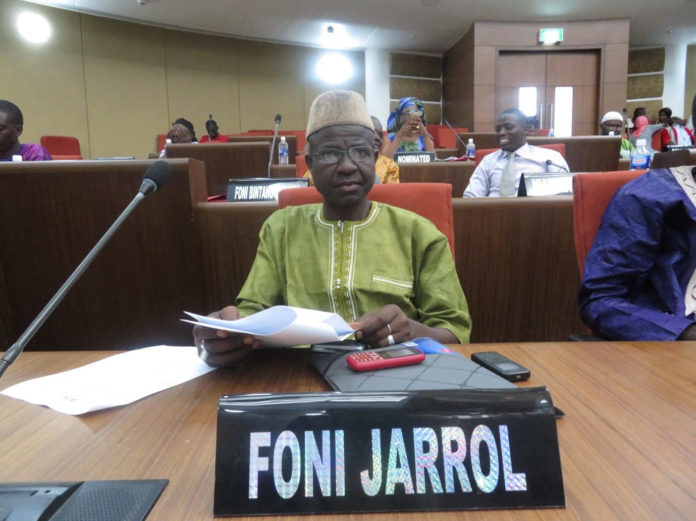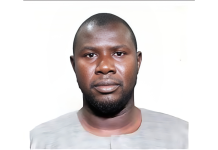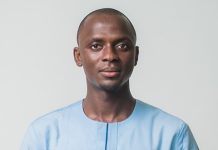By Momodou Jarju
Growing up in The Gambia, it never occurred to Alhagie Sankung Jammeh that he would be representing a constituency talk-less of involving in ‘deep politics.’
This was decades ago. Then, in his glaring eyes, The Gambia was fresh and emerging from the clutches of British ugly rule known as colonialism.
The Gambia, then manned by late and former Gambian President Dawda Jawara, was nothing like today according to Mr. Jammeh. His wish was to become a teacher after completing his education, a wish he accomplished.
“Then I was not even thinking of becoming a politician as I am today,” he recollected.
However, Jammeh would later threw his hat in the political ring of the country. First though, the veteran teacher endured hardship while he was growing up.
Born and brought up in Foni Jarrol, West Coast Region, Jammeh’s parents strived hard to educate him until he qualified as a teacher in 1978. He attended Kalagi Primary School in Foni where he did his primary education and then proceeded to Brikama Secondary School in 1974.
“Then from 1974 to 1978, I sat the secondary school technical leaving certificate examination which I successfully completed and joined the teaching field in 1978,” he said.
Jammeh was in the teaching field for about 35 years after which he developed interest in politics, ascending from a district treasurer to a representative of a constituency.
Teaching Experience
Jammeh’s first posting was in the provinces in the Upper River Region where he spent three years before he left for the Gambia College. He spent most of his teaching career in the West Coast Region.
Teachers’ salary left much to be desired during his yore years. At that time, Jammeh was receiving D175 per month. Those in the provinces received an additional D25 for house rent.
“If you compare the salary scales for that period and now, they are two different things. But then nonetheless, with that small salary we used to have, we were able to manage with it,” Jammeh said.
In his later years as a teacher, Jammeh was fortunate to attend a year program on Management at the University of The Gambia.
“I did the in-service program for school management teachers. Then, because I was a headmaster, I had that opportunity to attend the University for One Year Management Course. I had a certificate on that,” he said.
A year later, he was transferred to Sanghajorr Basic Cycle School in Foni as the vice principal.
Apart from teaching, Jammeh is passionate about farming. As a part-time farmer, when he is not engaged on national assembly matters, he ventures into small-scale farming at his home.
His philosophy about life is simple. Ups and downs he acknowledged are apparent in life, but he believed one cannot succeed in life without trying hard. To Jammeh, one has to endeavor and struggle hard for the betterment of the entire environment.
“And trying hard means by doing things that are genuine, that are mainly for the betterment of your life and people’s lives, including the environment that you live because you cannot be important if the environment that you live is not conducive for making your life important,” he said.
Why APRC?
Jammeh said he joined the Alliance For Patriotic Re-orientation and Construction (APRC) party because it envisioned lifting the country from the clutches of poverty to prosperity. Improving the standard of living and livelihood of the masses, he said, is principal in their aspirations as a party.
APRC was formed in the run up to the 1996 presidential election- having been transformed from a junta of the Armed Forces Provisional Ruling Council (AFPRC) led by Yahya Jammeh. Jammeh won the 1996 presidential election and three subsequent elections before he was dethroned in the 2016 presidential elections by current President Adama Barrow.
Critics described President Jammeh’s regime as an autocratic one characterized by killings, mistreatment, muzzling of the media, enforced disappearance of people among others.
Sankung Jammeh heaped praises on his party’s leadership accomplishments in a record of 22-year-rule critics described as dictatorial. These include the erection of a university, hospitals, roads and providing electricity to the population, among others.
“It was through the APRC Government that university came through,” he said.
In contrast to the 30-year-rule of late and former President Dawda Jawara, Sankung Jammeh believes President Jammeh’s rule was unmatched with the former regime. He said as a party, ensuring the country was food self-sufficient was part of their top priorities.
Former President Jammeh initiated vision 2016 to make The Gambia food self-sufficient, but the vision failed. Lawmaker Jammeh said the ‘unfortunate’ dethronement of former President Jammeh in the 2016 presidential run off thwarted their leadership’s rice vision for the country.
However, Jammeh is of the opinion their plan started gaining momentum as the rice fields at Central River Region (CRR) were many and the yield was booming.
Constituency!
Jammeh is representing over 17 villages at the national assembly. He did not promise his people things he could not do for them, a trait his boss, Yahya Jammeh, once advised him. Jammeh’s constituents are grappling with many challenges, ranging from lack of clean water and electricity to lack of empowering women gardeners whose gardens are intruded by salt water etc.
“We have a health center, but it is a pity. Go there right now, there is no ambulance. The ambulance which was with them was taken from them for this Covid-19,” he added.
Jammeh is not happy with the current government who, he said, have not brought development to his constituency.
Nonetheless, Jammeh encouraged Gambians to be patriotic and shun egocentrism. According to him, if everyone has The Gambia at heart since the first republic, the country would have climbed to the pinnacle of success.
“We should collectively see The Gambia as our country and let’s have The Gambia at heart. But because people don’t have The Gambia at heart, we have seen, a project {will be given} to somebody and at the end the project will fail, why?” he asked.
Sustainability is a problem in the country, he opined. According to him, righting the wrongs may take generations to come.
Jammeh wished they “come back to power and make a difference again.”
He outlined three sectors he believes should be the target of The Gambia if she wants to prosper, namely, agriculture, health and education. He thought agriculture should be the country’s topmost priority.




















